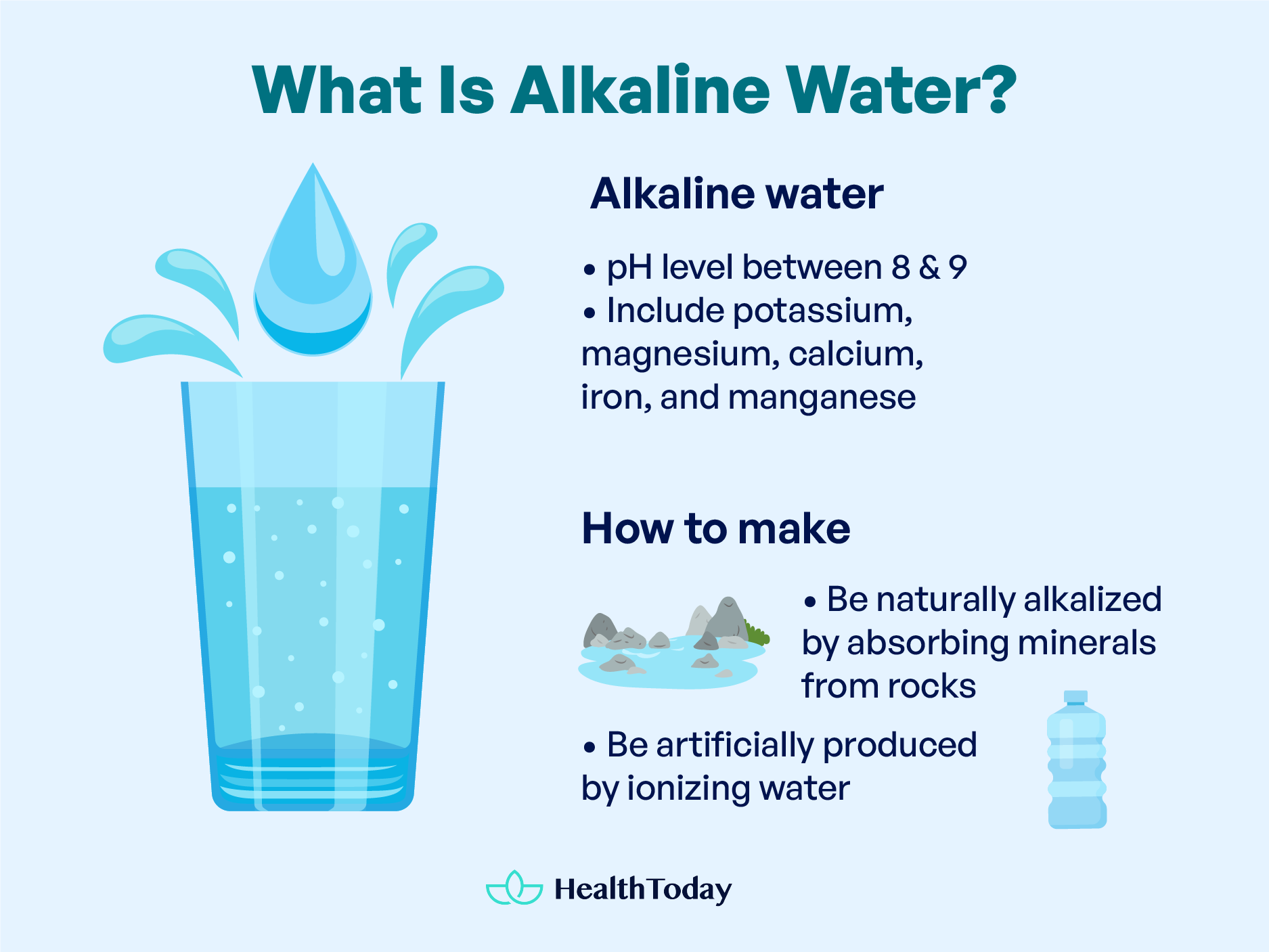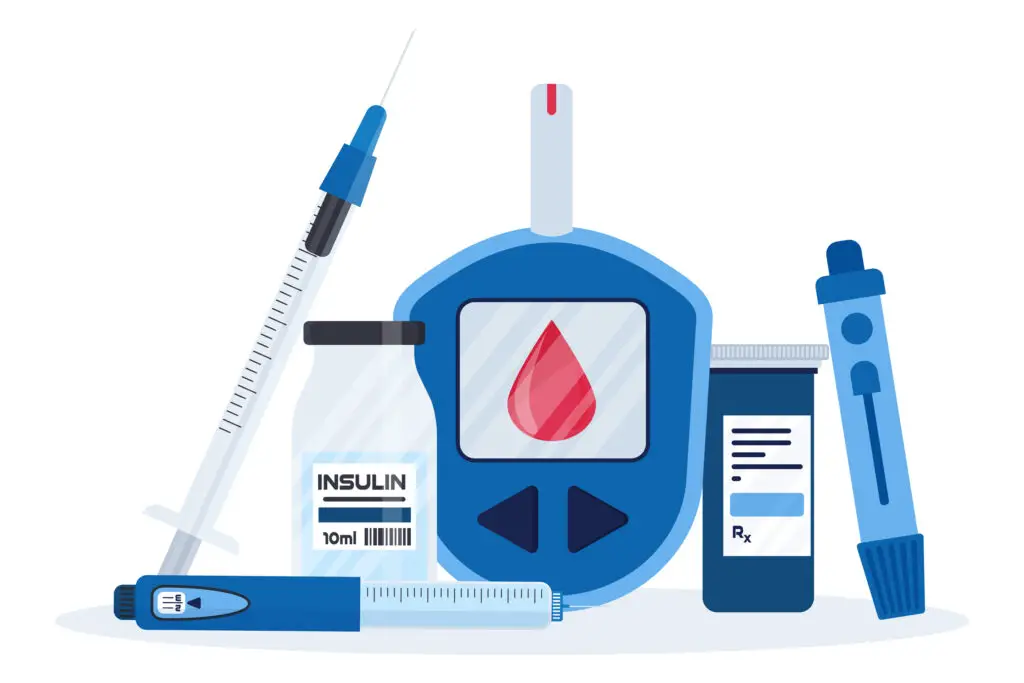Table of Contents
From clearing acne-prone skin to stopping cancer, a range of claims about what alkaline water can do for our health has been made.
From its name, some might think of it as chemical-treated water, but what separates it from regular drinking water are slight differences in alkaline water’s pH and components.
Given popular skincare treatments like micellar cleansers and mineral-rich thermal water, there is reasonable curiosity about alkaline water’s benefits for the skin. Some online beauty blogs have praised alkaline water as a calming treatment that helps rebalance skin’s pH and reduce inflammation. But is there any strong evidence to support these claims?
Let’s unpack the suggested benefits of alkaline water for skin health and other benefits based on its nutrient composition.
What is alkaline water?
Alkaline water’s facts
Alkaline water is a type of drinking water. The term ‘alkaline’ refers to the upper end of the pH scale, which measures acidity ranging from 0-14 (1). “Alkaline Water” usually has a pH between 8 and 9. This is slightly less acidic than regular drinking water, with a neutral pH of ~7.
Its pH results from alkaline minerals, including potassium, magnesium, calcium, iron, and manganese. Its nutritional benefits come from these minerals that are found in trace amounts.

It is important to note that alkaline water is not the same as ‘hydrogen water.’ Although all water is made up of hydrogen, chemically bound to oxygen in the H2O molecule structure, ‘hydrogen water’ refers to extra hydrogen dissolved into water but not restricted by molecular bonds.
Is alkaline water natural?
Water can become naturally alkalized after absorbing minerals from rocks, such as those found lining a spring.
It can also be artificially produced by ionizing water, often for commercially sold alkaline water.
Potential benefits of alkaline water for skin
Acne
Studies show high blood sugar levels are linked with acne (2). This is because frequent blood sugar and increased insulin spikes can cause the body to produce more inflammation and sebum, which can clog pores (3).
Although consistently high blood sugar levels can lead to diabetes, even non-diabetics can experience high blood sugar levels from overconsuming sweet and high glycemic foods (i.e., refined and simple carbohydrates) (4).
In animal studies of type 1 and type 2 diabetic mice, researchers found that alkaline water reduced blood glucose levels and improved glucose tolerance (5). Though it is unclear if this would directly impact acne development, it does show evidence of moderating one of the underlying factors.
Meanwhile, applying alkaline water onto the skin would likely not be beneficial, as increases in the pH of facial skin are thought to be a predisposing factor in developing acne and other skin infections, as changes in pH can compromise the skin’s natural barrier function (6, 7).
Hydration
Drinking alkaline water has more hydrating benefits than regular water, including improved acid-base balance (8, 9). Hydrated skin appears more vibrant and plumper, which helps reduce the appearance of fine lines and wrinkles. However, the direct application of alkaline water onto the skin has not been sufficiently studied, nor has classic hydrating ingredients like glycerine and hyaluronic acid.
Some good preliminary evidence suggests that alkaline water could help athletes perform better under anaerobic conditions with less oxygen availability, typically during high-energy activities such as sprints or combat sports (8, 10). The researchers suggested this is due to the improved use of lactate to produce energy in the muscles during these strenuous bouts of activity (10).
Antioxidant
Many skin conditions involve oxidative stress, which leads to irreversible changes over time (11). The extent of the damage can be minimized through the use of antioxidants.
Alkaline water’s antioxidant potential results from the combination of having a negative ORP charge (oxidation-reduction potential) and its specific chemical makeup (12).
Overall, the evidence for alkaline water in displaying antioxidant effects is limited. Still, there has been evidence from animal studies, which interestingly showed it amplified the effects of antioxidants that naturally occur in the body (13).
More research is needed to explore whether alkaline water could benefit the skin through this suggested antioxidant potential.
Anti-aging
The antioxidant potential of alkaline water has been identified on the molecular level by seeing a reduction in DNA damage in cells of bone marrow and ovaries in mice supplemented with alkaline water (13). Ovarian cell depletion in women is a core part of menopause, which is associated with signs of skin aging, such as skin collagen loss that leads to reduced skin elasticity and wrinkles (14, 15). This is mainly due to reduced estrogen production by the ovaries. Minimizing damage to the ovaries on the molecular level could help them function better for longer, delaying the signs of aging associated with menopause. However, the direct effects of alkaline water on skin aging and symptoms of menopause have not been studied.
Gut-Skin Connection
A growing body of evidence suggests that the appearance and condition of skin reflect gut health in what is called the ‘gut-skin axis’ (16).
One important feature of our gut is the gut microbiome. The overall balance of the microbial populations in our gut can strongly impact our health, and what we consume plays a significant role.
Several skin conditions are associated with imbalances in the gut microbiome populations (17). For example, infants with atopic dermatitis were found to have higher levels of Clostridium and Escherichia bacteria in their gut compared to infants without atopic dermatitis (18). In contrast, other bacteria can provide benefits, such as producing the neurotransmitter GABA, which reduces the sensation of itching in conditions like psoriasis, dermatitis, and dandruff (19, 20). They may even produce whole-body immune effects that reduce skin inflammation (21, 22).
Currently, there is no associated difference in the effect of drinking alkaline water on the gut microbiome compared with standard drinking water with a neutral pH (23). More research must be carried out to determine whether alkaline water could help support the gut microbiome.
Despite the lack of effect on the gut microbiome, there has been evidence of alkaline water impacting gut conditions, as in the case of gastritis (24). In a study conducted in 2020, the severity of gastritis was reduced after participants consistently consumed alkaline water over five months. However, there are no direct links with skin health.
There appear to be a few benefits of alkaline water on the skin, through both direct and indirect effects.
Alkaline water has been evidenced to reduce blood sugar levels and improve glucose tolerance in animal studies; this effect could indirectly benefit people who suffer from acne.
It also appears slightly hydrating to drink than regular drinking water, which might help improve skin appearance through a plumping effect.
Alkaline water has been shown to impact gut conditions, namely gastritis. Although skin health is generally linked with maintaining a healthy gut, this effect does not directly relate to skin health.
Safety Considerations
There are mixed views about the safety of alkaline water, how much you should use, or whether it’s safe to apply to the skin.
Consumption
Alkaline water was first approved by the Japanese Ministry of Health and Welfare in 1965 as safe to drink (24).
However, animal studies have raised safety concerns over regular consumption due to possible cell damage to heart tissue and elevated potassium levels (26, 27, 28, 29).
One animal study has also raised concerns that the water might impact development—young rats experienced uneven hair growth and a slower overall growth rate in response to drinking alkaline water (30). Although there is no conclusive evidence for the risk for children, there have not been any specific studies done to confirm this. Therefore, offering alkaline water to children and babies is not advisable.
Caution should, therefore, be taken in regular consumption of alkaline water. Those taking medication should also be wary of drinking alkaline water as the change in acidity of stomach acid can alter how drugs are metabolized in the digestive system (31).
Application to Skin
The surface of our skin is naturally acidic, with a pH level between 4-6 (32). It is claimed that washing our face with regular tap water and facial cleansers can alter our skin’s pH leading to irritation, where alkaline water is suggested to help re-balance it.
As alkaline water tends to have a pH of at least 8, it falls outside the recommended bounds. Contact with skin should, therefore, be minimized.
What are the pros and cons of alkaline water?
Pros:
- Could help reduce inflammation
- More hydrating than non-alkaline water
- Could help improve gut health conditions
Cons:
- Some potential risks that are not associated with regular drinking water
- Not as readily available
- More expensive
- Not well studied
What is the healthiest water to drink?
Sticking with regular drinking is the best option. Check the regulations in your home country to know whether tap water is safe to drink or, otherwise, drink bottled mineral water. It is generally best to avoid filtered water, lacking many vital minerals.
Can I shower with alkaline water?
Showering in alkaline water is not recommended, as prolonged contact with the skin can lead to irritation.
Can alkaline water affect your liver?
It is unlikely that alkaline water could remain unchanged after passing through the gastrointestinal tract to affect the liver.
Is coconut water alkaline?
No, coconut water tends to have a pH of ~6, which is slightly acidic (33).
Summary
The main difference between regular water and alkaline water is the pH and the components that make it alkaline.
Alkaline water is slightly more hydrating than neutral pH drinking water and has been shown to improve gastritis symptoms. It may also indirectly benefit the skin through positive effects on blood sugar control. However, insufficient evidence supports any direct benefits for these organ systems or its suggested anti-inflammatory effects.
While it is generally considered safe to drink, there are some safety considerations for those taking regular medications and possibly young people.
Better quality research is needed to confirm the therapeutic potential of using alkaline water.

















Comments
0